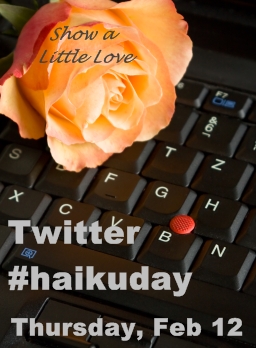Billed as a feminist science fiction convention, I wasn’t quite sure what to expect when I walked through the doors to WisCon for the first time. Held at the Concourse hotel in Madison, this was — by far — the best organized event I’ve ever attended. (This includes both the gaming-related and business events I’ve ever visited and spoken at.) I feel that this fact alone demands a certain sort of respect, given that this remains a volunteer-run organization.
As you may recall, I signed up for four panels and ended up moderating two of them. In addition to those panels, I attended several others that seemed interesting to me related to writing and publishing. In my opinion, I felt the audience was fairly responsive and respectful of the opinions that the panel offered. There were panelists from diverse perspectives and backgrounds, which provided for interesting discussions and audience participation. Unlike other panels I’ve spoken on, I also felt that the audience came with a basic understanding or desire to acknowledge the business functionality of both publishing and the entertainment industry. Translation? I had more conversations about online marketing and social media with other writers than I did about any other topic.
The publishing industry as a whole is shifting and changing so rapidly, that many authors I talked to feel that they need to embrace aspects of online marketing to monetize their efforts and sell more books. In an ideal world, a publishing company would allow the writer to simply write and provide the PR for them in order to sell books. Given the reality of today’s market and volume of publishers, I believe that even if an author doesn’t “do” their own marketing, they should at least be aware of what’s going on in the space.
There were a few topics that I’ll cover in later blog posts which I feel warrant further discussion. For example, I had brought up the issue of network neutrality in a panel discussing print vs. e-publishing. Another topic I’ll address is the challenges of establishing a writer’s community, and how the internet truly “seems” to be having an impact on how offline communities are shaped and supported.
Here are a few of the wonderful writers and editors I had the pleasure of speaking on panels with:
- Lori Devoti – Lori’s new book, Amazon Ink, just debuted a few days ago. She’s a very passionate and energetic writer who brought a lot to our discussion about Consistency vs. Variety in book series. Lori started her writing career in romance, but is now writing urban fantasy. Watch for a special treat from Lori on www.flamesrising.com in the next, few days.
- Kelly McCullough – Kelly is working on a novel series which debuted in 2006, called WebMage. He has a love for world-building, which shows both in his books and the discussions we had about Consistency vs. Variety. If you’ve never met Kelly, he’s a very likable guy with a great sense of humor.
- John Helfers – Both an author and writer, John and I wrangled a panel about Reinventing the Adventure in the wake of our moderator’s absence. Wearing probably the coolest t-shirt I saw at the convention, (Any Firefly fans out there?) John was an animated and experienced speaker who had a lot to say on the subject. If you’re a fan of John’s work (HINT: He’s working on Shadowrun) you can catch up with him at GenCon: Indy in August, too.
- Mary Robinette Kowal – Meeting Mary Robinette Kowal, who is the secretary for SFWA and up for a Hugo Award, was a lovely person to meet. Mary is extremely web-savvy, but also highly creative. Working as a puppeteer by day, Mary is definitely a writer that many science fiction fans should be keeping their eye on. Mary moderated the panel Do Writers Need a Platform?, and her first book is due out next year.
The people I mentioned were just a few of the talented folk I spoke with on panels, and I highly recommend that even if you don’t attend the conference you visit www.wiscon.info to check out the professionals that do attend. There were also dozens of professional writers and editors that I had the pleasure of chatting with, and I thoroughly enjoyed the opportunity to sit down with writers like Alex Bledsoe, Sarah Monette, Richard Chedwyck, Lynne Thomas and Michael Damien Thomas, Jack McDevitt, professionals from Tor Books and several others.
The other thing that I’d like to point out regarding this convention, is that there’s a strong element of literary criticism present at this convention that originates from a love of books. I believe that regardless of your opinions on a book or on writing, attending a convention like this one will open up your mind to new ideas and different perspectives. I did not have one conversation that I did not enjoy; everyone was respectful, intelligent and engaged — even if we disagreed. Additionally, even though this was the most diverse group of people I’ve ever seen at a con, they supported one another tremendously.
I will be attending next year’s convention and hope to speak on panels. I invite you to participate, volunteer and do the same.
Thanks for following my blog! Instead of wishing you best of luck with your writing today, I hope that you are able to fall in love with a book.

 What is
What is